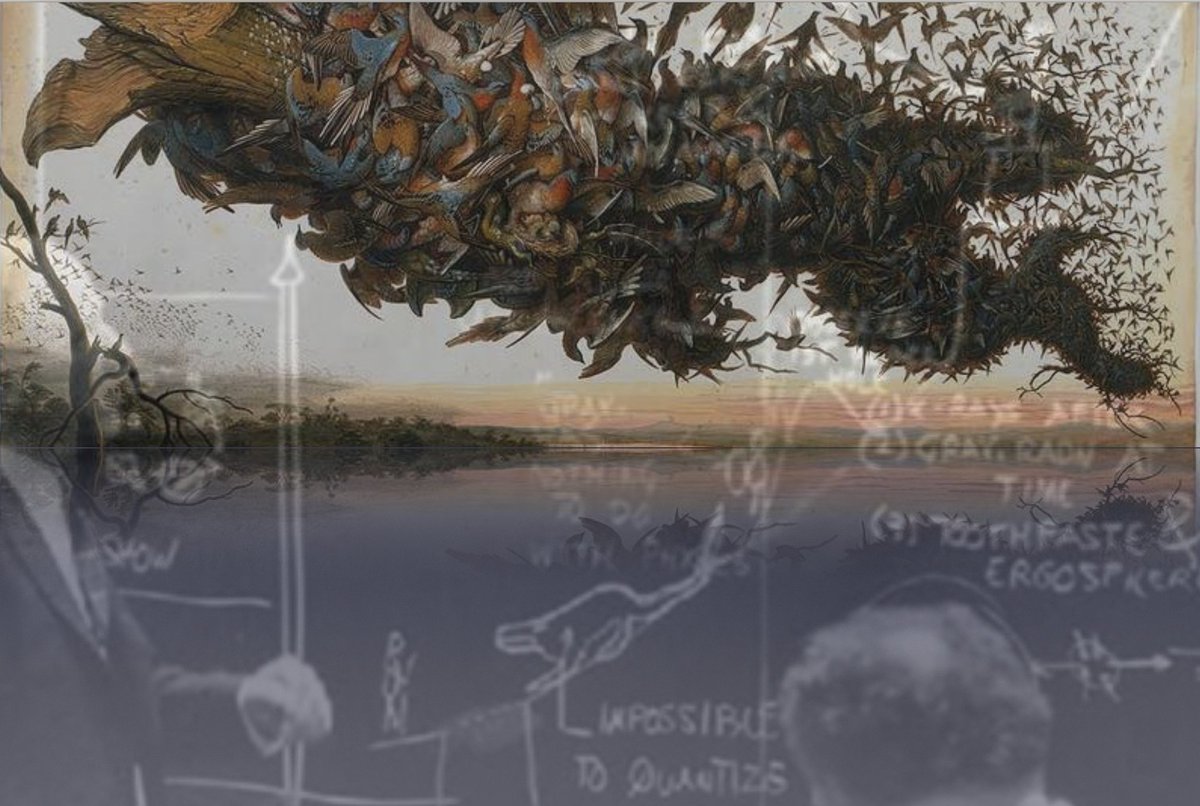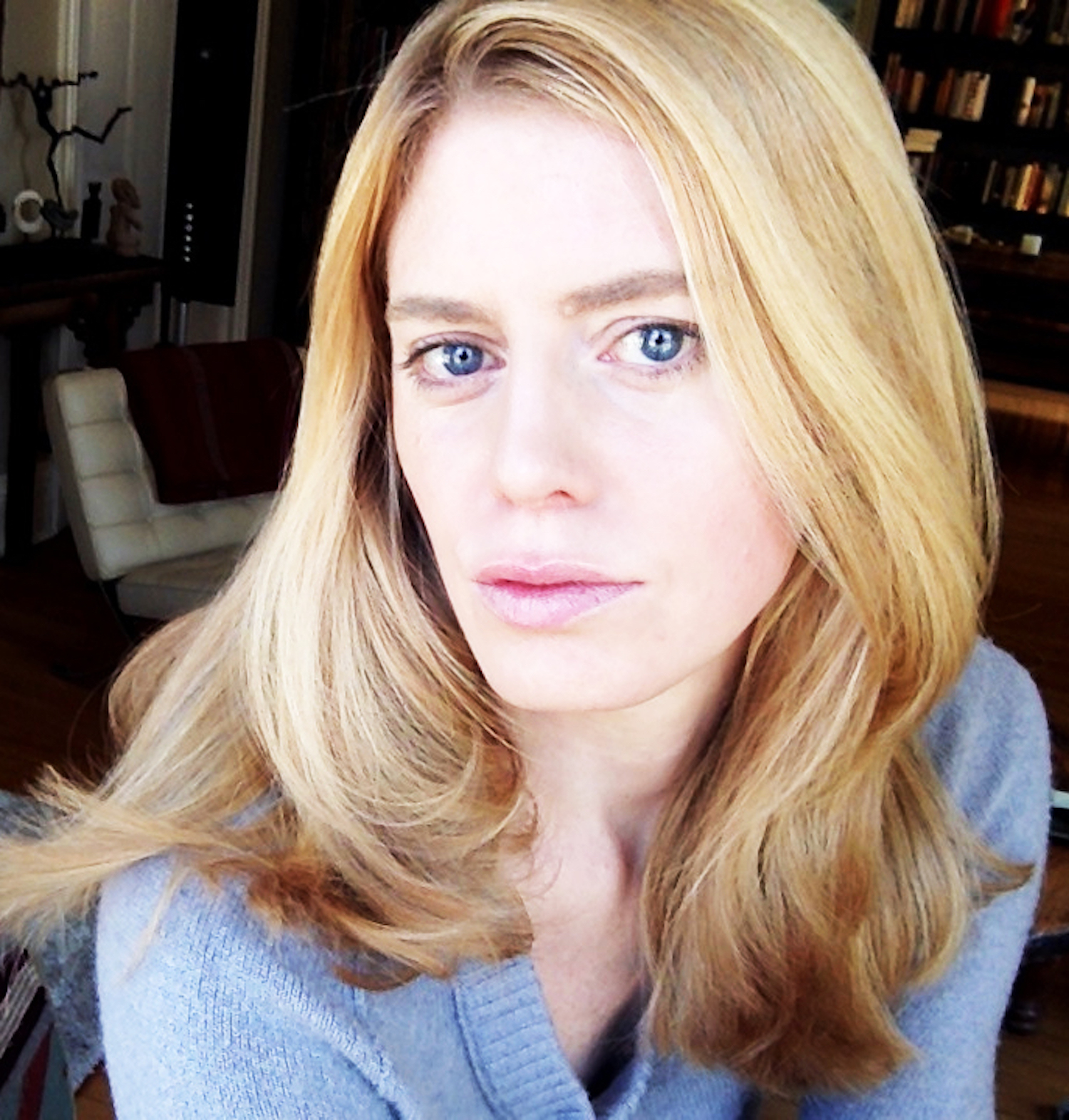

Flack is a professor at the Santa Fe Institute, director of SFI's Collective Computation Group (C4), member of SFI’s Science Board, co-organizer of SFI's Community Lecture Series [archived here], and a chief editor of an open-access, transdisciplinary journal, Collective Intelligence. Previously, Flack served as founding director of University of Wisconsin-Madison's Center for Complexity and Collective Computation in the Wisconsin Institutes for Discovery.
Flack has spent most of her academic career at SFI and has a good understanding of its intellectual history and cultural evolution. Her introduction to SFI was in the dusty Mann Library Stacks during her freshman year at Cornell University. In the summer of 2000 while a graduate student Flack attended SFI's Budapest Complex Systems Summer School directed by Melanie Mitchell. Flack's residency at the Institute began soon after with a graduate fellowship that morphed into a program postdoctoral fellowship supervised by SFI's president at the time, Ellen Goldberg, and funded by an NSF grant the purpose of which was to bridge theoretical and experimental work. Flack was awarded a core-funded (akin to an Omidyar) postdoc for two years before joining SFI's faculty in ~2008.
For much of Flack's tenure at SFI, Murray Gell-Mann—one of SFI's Founders + winner of the Nobel Prize in physics for his work on the quark— was in residence, serving as provocateur during talks and general maker of intellectual mischief, in addition to continuing his work in fundamental physics, the physics of complexity, and collaborating with linguists on the cultural evolution of language. Murray was generous with his time. One afternoon over a two and half hour lunch at SFI's transition space lunch table he introduced Flack—then a graduate student with a background in biology, cognitive science, and evolutionary theory but not yet much exposure to physics—to the history and significance of coarse-graining and renormalization group theory. For Flack, it was a lambent, negative capacity cultivating moment.
Flack considers herself a computational Platonist whose intrinsically collaborative research focuses first principles approaches to deriving micro-macro relationships in information processing systems to understand the origins of biological space and timescales. Flack works across levels of biological organization—from cells to societies—to discover the computational logic that allows nature to overcome noisy information processing and compute robust, ordered states. A goal is to lay the groundwork for a formal language of collective computation that takes seriously the universal collective property of biological systems, thermodynamic constraints, and mechanism.
Insights from this work include, 1) biology is more about "complexity begets complexity" than "complexity from simplicity", 2) noisy information processors compute their macroscopic worlds through collective coarse-graining in evolutionary and learning time, 3) collective coarse-graining is a downward causation mechanism that can facilitate the consolidation of new organizational levels, 4) Hourglass Emergence—compression of microscale complexity produces an information bottleneck, which by reducing uncertainty can allow for a macroscopic expansion of function, 5) individuality can be formalized information theoretically as temporal uncertainty reduction (Information Theory of Individuality), and 6) quantifying and testing for robustness requires taking into account both the causal contribution of components pre-perturbation and what happens to the system during their exclusion (knockout).
In addition to expatiating these ideas, Flack is toying with how they might contribute to the nascent science of consciousness.
Flack has also worked on criticality, robustness + regulatory mechanisms, emergent engineering, inductive game theory, institutional change, social power and leadership, conflict management, the evolution of signaling systems, animal behavior, and the building blocks of moral systems. Flack enjoys thinking about how to push the boundaries of human potential and the role collective effects—particularly synergies and higher order interactions—play in individual and team performance.
Flack's work has been covered by journalists and scientists writing for the BBC, NPR, Nature, Science, The Economist, New Scientist, Current Biology, The Atlantic, and Quanta Magazine, among others. Flack loves contributing to 'ideas-twitter', sharing thoughts on interesting papers, and writing long form essays for magazines like Aeon. In 2020 Flack's work with Nihat Ay, David Krakauer and several other collaborators on the information theory of individuality (ITI) was chosen as a science breakthrough of the year by Quanta Magazine.
Beyond science, Flack's personal interests include observation and exploration, wild places, animal behavior + social dynamics, role of translation in finding common ground, literature, criticism, + poetry, aesthetics, fashion + the visual arts, music, cooking + raucous dinner parties, gardening, maps, and watching + playing sports, especially basketball (watching, playing perhaps one day!), swimming, surfing, and backcountry hiking, running + snowshoeing. Two entropic cats, Wampus + The Aleph, contribute continuous disruption.
